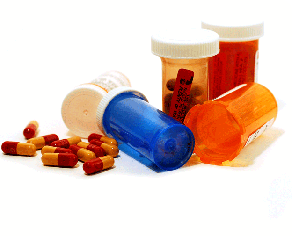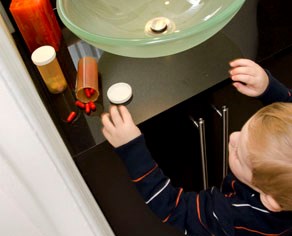Medicines

Medicines are by far the most common substances that the Ontario Poison Centre is contacted about. They include:
- Prescription drugs - These medicines are prescribed by a doctor and must be filled by a pharmacist.
- Over-the-counter remedies - These medicines may be purchased in a variety of locations including pharmacies, grocery stores and sometimes at the check-out at a gas station. They do not require a prescription.
- Natural, herbal and homeopathic remedies - These medicines may be purchased in a variety of different locations including a pharmacy, health food store or through your naturopathic doctor.
- Vitamins - These may be over-the-counter multivitamins or stronger prescription ones.
In recent years, Ontario has been faced with a public health crisis in the form of opioid overdose. Deaths due to opioid exposures are escalating. Learn more about the OPC's recommendations.
Over-the-Counter Remedies
Many medicines can be purchased without a prescription. Although these medicines are not as strong as those that need a prescription, they can still be dangerous if taken or given incorrectly. Many medicines may contain the same ingredients, so it is important to be aware of the actual ingredients in them so that you do not take more than the recommended dose.
Natural Remedies
Many people choose natural or homeopathic remedies rather than prescription and over-the-counter medicines because they believe they are safer than prescription and over-the-counter medicine. This is not necessarily true. Natural and homeopathic remedies need to be treated with just as much caution as any other type of medicine. They can be extremely dangerous if used incorrectly. Make sure you speak to your doctor or pharmacist before using these products.
Know Your Medicines
It is important to keep track of what medicines you and your family take. Keep an up to date record of the medicines you take daily as well as the ones you take once in awhile. On this record you should write down the name of the medicine, the strength of the ingredients (# of mg), and the dose that you take. Keep this list in your purse or wallet in case of an emergency.
Example:
Trazadone 100mg/tab, 1 tab every 12 hours
Oxazepam 15mg/tab, 1 tab (take one tab every couple of days)
Acetaminophen regular strength, 2 tabs (take 2 tabs rarely for headaches)

Expired medicines
Get rid of old, expired medicines. Speak to your pharmacist about how to discard them -- do not flush them down the toilet unless told to do so.

Store medication safely
All medicines should be stored safely in a locked cupboard, box or other container. Keep them locked up tight and out of sight!
